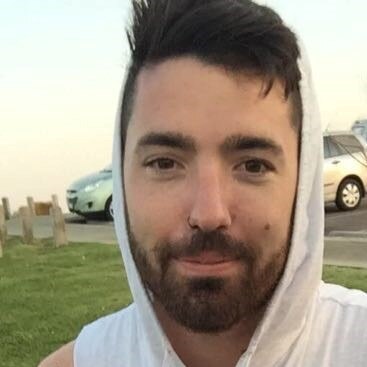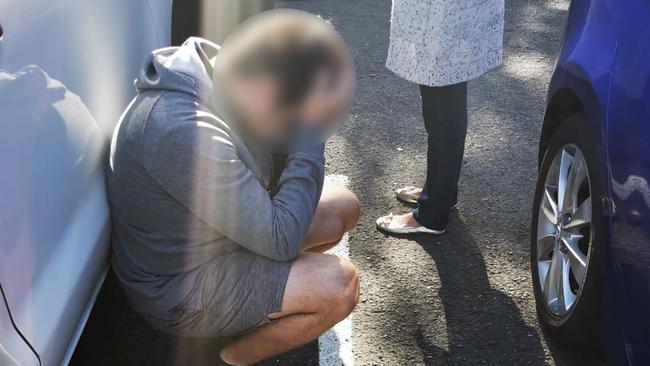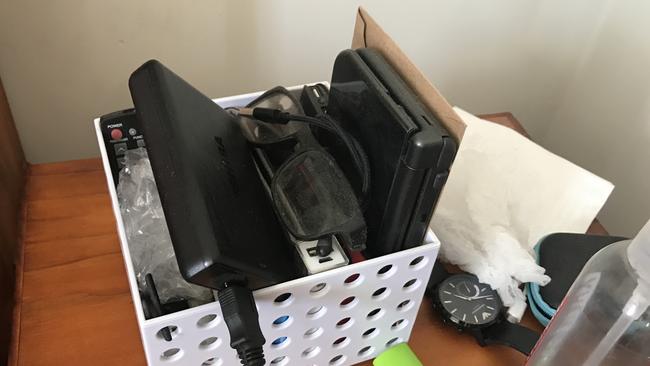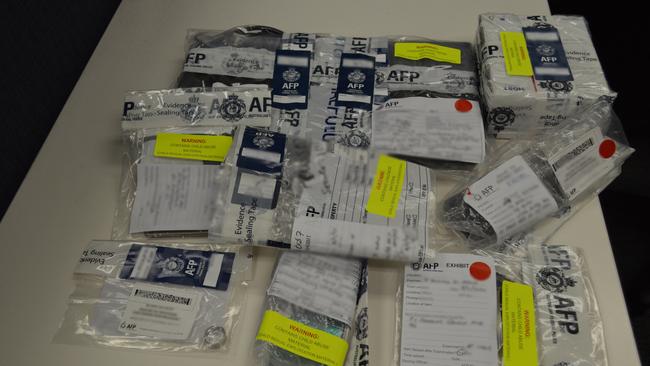Inside Arkstone: How Australia’s largest online child abuse investigation began
Teachers, childcare workers and coaches were among the men arrested in Australia’s largest online child abuse probe. Find out how a USB stick and phone unlocked the twisted web of exploitation.
Local
Don't miss out on the headlines from Local. Followed categories will be added to My News.
They were two pieces of tiny computer technology, the size of a pinkie and palm.
But the mobile phone and USB stick, sitting in plain sight in the toy-filled bedroom of a nondescript house, unlocked some of the most depraved paedophilia ever uncovered in Australia.
The devastating discovery formed just one tentacle of what became the nation’s largest online child abuse investigation. It was only the beginning.
Forcing the device’s owner before the courts was the result of an extraordinary global effort.
US authorities tipped the AFP off about a suspicious Snapchat account, which was later tracked down to an address in Wyong, some 16,000km away on the NSW Central Coast.
Now, officers faced two seemingly impossible tasks: saving the dozens of Australian children whose stolen innocence was the collateral damage of sickening, selfish desires; and doing so before they endured more hell.

The average police probe was no match for that ticking time bomb. And so, Australia’s largest online child abuse investigation was born: Operation Arkstone.
In the two-and-a-half years since that search warrant, the Australian Federal Police have saved 56 children and 11 dogs. They’ve arrested 26 Australian men aged between 20 and 48 years old, all charged with viewing, sending or receiving child abuse material and some also charged with actual abuse. Twelve of those men have learned their fate and the rest remain before the courts.

“I was absolutely shocked,” AFP acting sergeant Scott Veltmeyer said from the AFP’s Sydney headquarters, recalling the moment he first saw the content from that Wyong home.
“It was horrendous, unthinkable material. I could not believe this was happening to children. You would never want anyone to watch those videos.”
Nearly a year-and-a-half after that first arrest on February 11, 2020, the owner of that paedophilic material, Justin Radford, pleaded guilty to 17 crimes. He was initially charged with more than 100 offences.
The former Channel 9 librarian pleaded guilty to filming himself sexually assaulting a young boy and sending those videos, as well as thousands of pieces of child abuse and bestiality material, to 19 people online.

He was jailed for 18 years. He has since lodged a notice of intention to appeal his sentence with the court.
By arresting Radford, police had peeled off first layer.
In an effort to build the strongest case possible, they faced the unimaginably daunting task. They had to comb through thousands of videos and images of horrific violations of children and even babies.
In one corner was a Sydney-based AFP team of two experienced detectives, 12 investigators and one intelligence officer, who worked with state counterparts and international agencies in 37 countries. Throughout the investigation, Australian police sent 154 referrals to overseas police. Arkstone’s cases were triaged by the AFP-led Australian Center to Counter Child Exploitation (ACCE).
Their opponents were vile human beings from around the world, exchanging child abuse content over common chat platforms like Snapchat and destroying vulnerable lives with one click of a cruel finger.
Under revolting names such as “Baddad08”, many of the men posted advertisements for like-minded perverts, specifically asking for dads, babysitters or coaches to add them.
For the first time, the agents at the centre of the probe have shared their stories, including the investigation’s inner workings, how the toughest cases were cracked and the emotional toll of sifting through thousands of files of vulgar material.
What shook Sgt Veltmeyer was the vast number of kids who were exposed to these men, let alone under their care.
Among them were child care workers, a teacher, a soccer coach, an air hostess about to become a teaching assistant, a disability worker, a supermarket attendant, a chef and an electrician.

Some seemingly unassuming, but calculated, men deliberately seeped through their communities in various ways, where they were thanked and appreciated by parents for being good with kids and giving back to others. They were a far cry from the false but lingering paedophile stereotype of the creepy old man who keeps to himself.
One overseas referral led officers to a man who had been approved to adopt two young boys. Disturbingly, he had spoken online with another man in Australia about how he planned to abuse those children.
As dark a discovery as that was, Sgt Veltmeyer was glad he arrested that man before he got the chance to lay a hand on those children.
That’s because the prevention of any such crime is obviously a win. But also because too often in his job, the paedophilia has already happened by the time those responsible reach his radar.
By then, it has been filmed and irreversibly released into the internet, only for these children to be re-victimised by every new pair of eyes that lay upon it. Sgt Veltmeyer wishes his were not among them.
But trawling through mountains of inconceivably revolting material came with the territory of each new arrest.

“For every video, we have to write a summary for the statement of facts, and that’s not just the abuse he’s done but all the videos he’s downloaded and been sent from other people,” Sgt Veltmeyer said.
“Then we then have to categorise those videos and work with our victim identification team to find the children we don’t know. It’s horrific material, but at the back of your head you’re doing everything you can to find those children and take the offenders to court.”

When Sydney soccer coach Grant Harden pleaded guilty to 179 charges including sex with a child under 10 and disseminating child sex abuse material, the court heard there were thousands of images and videos. Some included bestiality.
In just four days, he exchanged them with 148 Snapchat users.
As the videos were outlined in court, police called journalists for welfare checks – quite a rarity. Incredibly, Sgt Veltmeyer said these were far from the worst of the videos.

In March, Harden was jailed for 30 years with a minimum of 22 years. He has since lodged a notice of an intention to appeal his sentence with the court.
In another case that was frustratingly hard to crack, a man sent piles of vile content on a sophisticated chat platform that would not share information with police, despite knowing it was child sex abuse.
“Child protection hit a dead end. We were working so hard to find him but our cyber team really stepped up,” Sgt Veltmeyer said.
Eventually, they managed to crack the algorithms without the platform’s help. It was not an easy feat.

They quickly pounced on the alleged culprit.
With each new search warrant, police would find more evidence to lead them down the shocking child abuse rabbit hole and the next potential offender, until they exhausted all leads.
“There were times were you didn’t sleep for a few days because you were trying to find victims (and) offenders, looking through evidence - doing everything as quickly as we could,” Sgt Veltmeyer said.
From a domestic point of view, Arkstone’s operational work has finished. But many arrested men were still yet to face the music in court and international matters were ongoing.

During the interview, Sgt Veltmeyer had been well composed, but his voice choked as he spoke of the moment he realised his hard work and sleepless nights had paid off.
Federal and state police forces had undertaken four simultaneous search warrants on the NSW Central Coast to catch a childcare worker who had abused 31 children and was in a relationship with another child abuser.
Having barely slept since arresting the men the day before and spending a long morning at court to ensure they were refused bail, Sgt Veltmeyer went to the childcare centre to check some evidence.
“These kids were laughing and playing and that’s what kids should be doing, right?” he said through a crackling voice.
“I remember there was this little boy, he thought he knew me, and he just ran up to me and was so happy and all the kids were giggling and it really hit me that these kids would never have to see the offenders again.

“Every child has a right to feel safe, go to childcare or to a school or a soccer match, and not be neglected or abused. And I still remember that little boy.
“It was by far the most rewarding point in my career. People talk about being promoted or other stuff, but yep, by far.”
Enduring Two-and-a-half years of arguably the most emotionally challenging investigation of his career felt worth it each time Sgt Veltmeyer saw another man handcuffed.
But the relief was bittersweet.
He was comforted by the fact many kids would likely never see their abusers again – if, of course, they get locked away.
“But at the same time, when you see that child and you know what they have been through, it’s gut-wrenchingly tough,” he said.

“Then you speak to the parents and caregivers and tell them what happened – a lot of them just don’t believe you. It’s by far one of the hardest jobs I’ve ever had to do.”
His team may have succeeded in finding the Australian children tangled in the nation’s biggest online child abuse probe for now, but he feared what constantly evolving technology and encryption could mean for the future.
He said research showed one in five kids around the world had been sexually solicited online.
“Stranger danger used to be about the man in the coat on the street, but the message now is that we need to teach our children that the online space is taking over that,” he said.
“Technology is unfortunately how people with an interest in children are starting to communicate. It’s not going away.
“Our job is to keep saving as many kids as we can.”





